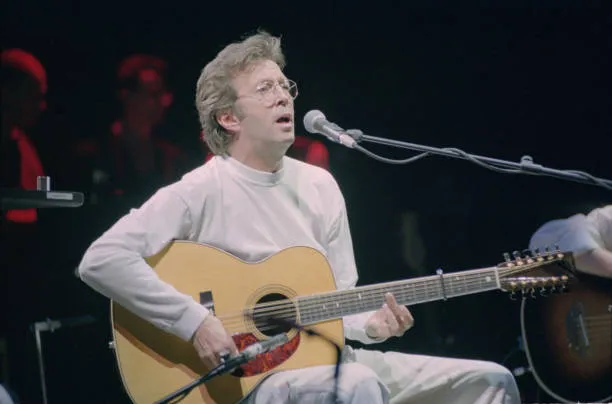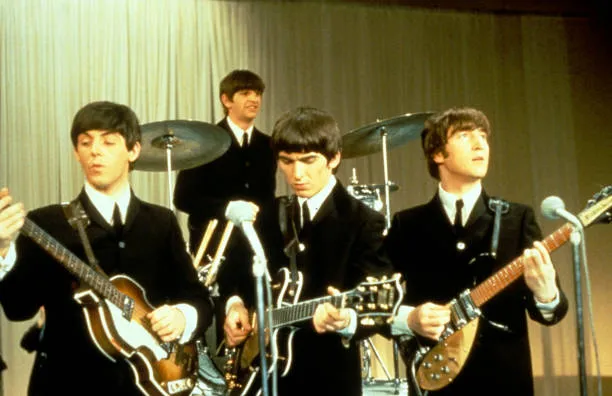John Lennon’s impact on male vulnerability in rock music is undeniable. Throughout his career, especially during his post-Beatles years, Lennon’s willingness to express emotional rawness and inner conflict helped break down barriers around traditional masculinity in rock music. His openness about his personal struggles, from insecurity and self-doubt to his relationships and family dynamics, set a precedent for future generations of male musicians. In a genre that often prized machismo and bravado, Lennon brought a level of emotional transparency that challenged stereotypes and redefined what it meant to be a male rock star.
Early Years: Hints of Vulnerability in The Beatles

During his time with The Beatles, Lennon’s songwriting began to show glimpses of emotional complexity and vulnerability. Although many of the band’s early hits focused on love and relationships in a more traditional pop sense, songs like “Help!” (1965) revealed Lennon’s internal struggles. In "Help!", Lennon sang about his feelings of isolation and anxiety, despite being at the height of The Beatles’ fame. While the song was presented as a pop anthem, the lyrics were a plea for assistance, marking an early departure from the carefree image of rock stars. This was one of the first moments where Lennon began to inject his personal struggles into his music, paving the way for deeper self-exploration.
The Influence of Yoko Ono and Lennon’s Solo Career

After The Beatles, Lennon’s relationship with Yoko Ono played a pivotal role in his increased openness about vulnerability. Ono’s avant-garde influence encouraged Lennon to explore his inner world, confront his demons, and express his emotions in their rawest form. His debut solo album, John Lennon/Plastic Ono Band (1970), is perhaps the most significant example of Lennon’s willingness to be emotionally exposed.
In songs like “Mother,” Lennon laid bare his trauma from losing his mother at a young age, crying out for love and reconciliation. The primal scream therapy that influenced much of this album allowed Lennon to express pain in a visceral, unfiltered way. Songs such as “Working Class Hero” also dealt with themes of alienation, frustration, and disillusionment, reflecting both Lennon’s personal experience and his understanding of the working-class struggle. His admission of these feelings broke from the traditional rock narrative of male invulnerability, showing that vulnerability, pain, and anger could coexist within the genre.
“Jealous Guy” and Masculine Fragility

One of Lennon’s most poignant expressions of male vulnerability came in the form of “Jealous Guy” (1971), a song that directly addressed insecurity and fragility in relationships. In this song, Lennon admitted his jealousy, fear of losing his partner, and his own shortcomings. The gentle melody and sorrowful lyrics combined to make an apology that was striking in its honesty. This marked a shift away from the often aggressive, alpha-male personas projected by male rock stars of the era.
"Jealous Guy" helped pave the way for future male musicians to talk about emotional vulnerability, jealousy, and fragility without shame. Lennon’s unapologetic exploration of these traditionally “unmasculine” feelings opened up space in rock for more introspective, emotionally complex male voices.
Lennon’s Struggles with Fatherhood and Self-Doubt

Lennon’s songs about his family and fatherhood also highlighted his vulnerability as a man. Tracks like “Beautiful Boy (Darling Boy)” from his 1980 album Double Fantasy showcased his deep love and concern for his son, Sean. At the same time, it also reflected Lennon’s anxieties about being a father, especially given his strained relationship with his first son, Julian. Through songs like these, Lennon exposed his doubts and regrets about his past mistakes, creating a more nuanced and emotionally available depiction of fatherhood.
Additionally, Lennon’s later songs often delved into his insecurities, questioning his place in the world and in his relationships. In “Watching the Wheels,” he reflects on stepping back from the music industry to focus on his family, acknowledging his desire for a simpler, more meaningful life. This theme of introspection and self-doubt further humanized Lennon and brought a refreshing sense of honesty to rock music, showing that even a global superstar could grapple with feelings of inadequacy and confusion.
Challenging Traditional Masculinity in Rock

Rock music during Lennon’s era was often defined by notions of strength, rebellion, and independence, traits typically associated with traditional masculinity. However, Lennon’s music helped expand this definition, incorporating vulnerability as an essential part of the male experience. By openly discussing his personal struggles with depression, anger, and insecurity, Lennon challenged the idea that male rock stars needed to project a façade of invincibility. He showed that emotional openness was not a weakness, but rather a powerful form of expression.
Lennon’s advocacy for peace and love, particularly through songs like “Imagine,” also reflected his belief in the transformative power of empathy and vulnerability. He encouraged men to embrace these qualities, moving away from the hyper-masculine ideals of dominance and aggression that often permeated rock music at the time. This shift had a profound effect on the genre, influencing later artists who would further explore emotional complexity in their music.
Lasting Legacy: The Path for Future Artists

Lennon’s willingness to be vulnerable in his music left a lasting legacy on rock and popular music. He influenced generations of male musicians to express their emotions more freely and to challenge the traditional notions of masculinity that dominated rock. Artists such as Kurt Cobain, Eddie Vedder, and Thom Yorke have all acknowledged Lennon’s impact on their work, particularly in their own explorations of pain, insecurity, and emotional fragility.
Kurt Cobain, in particular, often cited Lennon as a hero, and his own music with Nirvana carried forward the tradition of laying bare emotional pain. Songs like “Something in the Way” and “All Apologies” mirrored Lennon’s confessional style, dealing with themes of alienation, self-doubt, and emotional vulnerability in a genre that was typically defined by aggression and bravado.
Conclusion
John Lennon’s influence on male vulnerability in rock music reshaped the way masculinity was portrayed in the genre. By opening up about his personal struggles, Lennon helped dismantle the rigid expectations placed on male rock stars, showing that vulnerability could coexist with strength, creativity, and influence. His music offered a more nuanced and emotionally complex representation of men, paving the way for future generations of artists to express their own vulnerabilities with honesty and authenticity. Lennon’s legacy in this regard continues to resonate, reminding us that emotional transparency is not only valuable but essential in the world of rock and roll.



